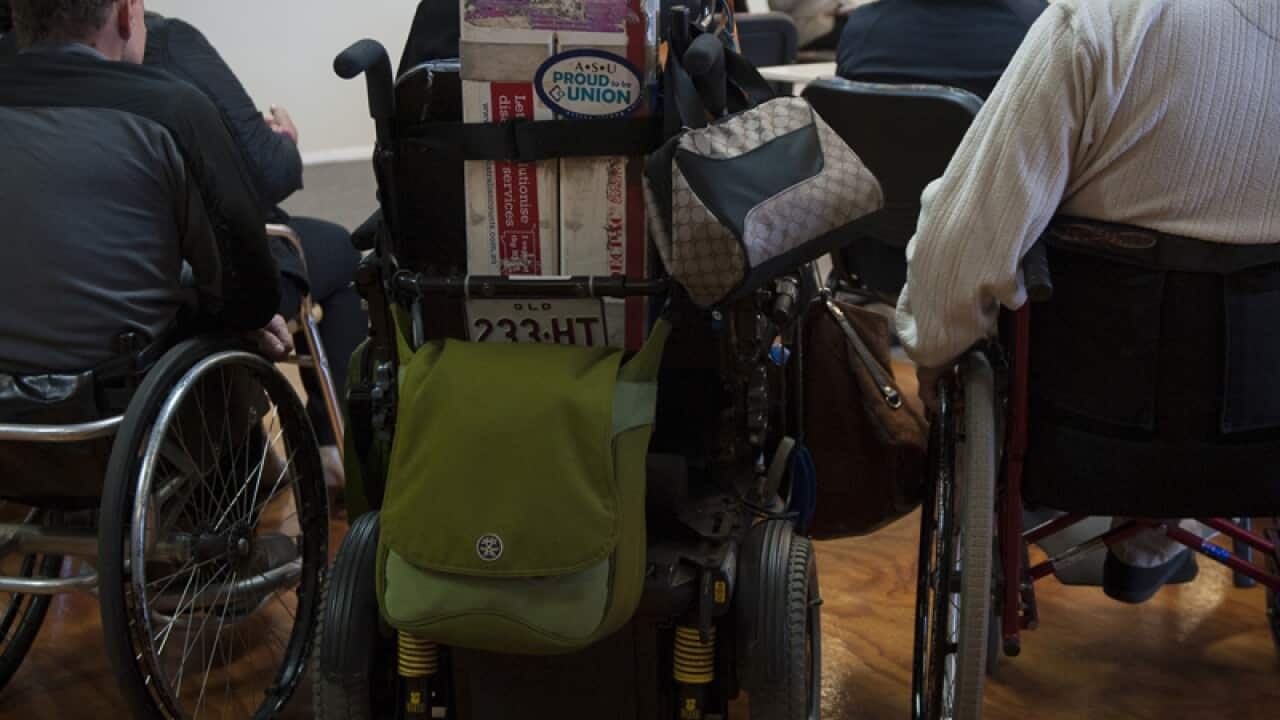Australian doctors are concerned a lack of interpreters in rural and regional areas is leading to poor health in migrant and refugee communities.
Meanwhile service providers say more awareness is needed within the medical community about the needs of patients from non-English speaking backgrounds.
There are several interpreting services in Australia, including the federal government’s Translating and Interpreting Service, but many of them are concentrated in and around the country’s major cities.
Few of them offer face-to-face services in rural and regional areas, where people from migrant or refugee backgrounds are increasingly being encouraged to move.
'There’s probably a significant problem here that needs to be addressed.'
Rural Doctors’ Association of Australia president Dr Ewen McPhee told SBS News the problem was unspoken and was likely more serious than many people realised.
“There’s probably a significant problem here that needs to be addressed, that possibly isn’t being addressed because people aren’t talking about it or they’re making do,” he said.
“It probably means the outcome for people’s health isn’t what it could be."
Dr McPhee, who works as a general practitioner in Emerald, Queensland, said doctors found the telephone interpretation services difficult to use as they usually required bookings to be made. They can also be quite expensive.
In areas outside of major cities it was rare to have an interpreter in the room, he said.
“There are many communities who simply don’t go [to the doctor] because they feel the doctor doesn’t have time for them, to understand them,” Dr McPhee said.
Related reading

Fears for multicultural aged care homes
The language barrier
Studies have shown the language barrier, and the fear doctors will not understand them or be able to accommodate their language needs, leads many people from migrant or refugee backgrounds to avoid seeking medical attention.
It is one factor that contributes to poor health outcomes for people of non-English speaking backgrounds in Australia.
Acting chairwoman of the Federation of Ethnic Communities' Councils of Australia (FECCA) Eugenia Grammatikakis told SBS News the organisation’s clients had reported reluctance and a lack of awareness among doctors and their staff about the use, and even the existence, of interpreters for medical appointments.
“They have very little knowledge about interpreter services and how to use them and this contributes to interpreters not being booked when clients front-up at medical appointments,” she said.
“Clients are often asked to bring a family member [to the appointment] and this is often not the best way to manage the client-doctor communication.”
Dr McPhee said unskilled seasonal work, like fruit picking, often brought non-English speaking migrants to rural and regional areas where the lack of interpreters meant any health problems or injuries could be difficult to treat.
“I was called to a very serious car accident involving two young Korean men and trying to treat them, and not being able to speak the language was very difficult,” he said.
“You can see how it can lead to poor health outcomes.”
Dr McPhee said high quality video conferencing technology that made it easy “to find the right person at the right time” would be the next best option to having interpreters present during a consultation.
Ms Grammatikakis said it was important for patients to have professional, unbiased interpretation free of the emotional attachments that came with using a family member or friend to interpret.
“What we recommend is there needs to be ongoing information and awareness-raising, particularly among GPs and their staff about the benefits of using an interpreter,” she said.
“Many of them misunderstand the risks of not doing so.”
Patients at risk
Associate Professor Dr Santosh Jatrana, of Melbourne’s Swinburne University of Technology, said these risks could be serious if patients were unable to make themselves understood.
“Communication is very important for health services, not only in the first place of going to the doctor, but [poor communication] could lead to inappropriate diagnosis and treatment, which can lead to poor health outcomes,” she told SBS News.
Dr Jatrana said more widespread interpretation services would be very important given migrants made up nearly a quarter of Australia’s population and were increasingly moving away from major cities into rural areas.
She said it was also increasingly important to provide written health information in a wider range of languages.
'Having someone there is absolutely important for clinical outcomes and for the quality and safety of the work.'
The personal hardships experienced by many of Australia’s migrant and refugee residents mean mental health is one of the biggest challenges facing these communities and the health practitioners that serve them.
Transcultural Mental Health Centre manager Maria Cassaniti told SBS News interpreters were essential for all aspects of mental health diagnosis and treatment.
She said interpreters were able to ensure a correct diagnosis was made and that patients were able to properly engage in meaningful treatment.
Ms Cassaniti said NSW Health facilities and hospitals usually had in-house interpreting services, but in rural and regional areas and in private practices it could be more difficult to access face-to-face services.
“Having someone there is absolutely important for clinical outcomes and for the quality and safety of the work,” she said.
Related reading

Language crisis confronts aging CALD communities
“It’s easier to pick up facial expressions that are very important in mental health.”
Some mental illnesses were particularly difficult to diagnose without the right information, Ms Cassaniti said, meaning clinicians could more easily “over diagnose or underdiagnose”.
Bilingual and bi-cultural mental health professionals also play an important role in treating non-English speaking patients.
Ms Cassaniti said they were able to guide clinicians in establishing “culturally relevant management and care plans” and ensure the patient completely understands the diagnosis and the treatment.
Translating cultural messages
Mick Vujanov is the rural co-ordinator for Health Care Interpreter Services and the co-ordinator of Rural Multicultural Health. It provides interpreter services across most of NSW, including stationing interpreters in regional centres like Orange, Dubbo and Tamworth.
He told SBS News interpreters were trained to not only translate one language to another, but also to reconcile cultural differences to ensure the meaning behind the words was understood.
“Australia is a multicultural, multilingual society, however the working environment is monolingual,” Mr Vujanov said.
“[Interpreters] have the capacity to bridge that gap.”
'There’s no substitute for face-to-face interpretation.'
Mr Vujanov said migrants and refugees from non-English speaking backgrounds often did not have medical literacy in terms of their own body and had come from environments in which health problems were rarely discussed.
“Translating itself is really translating messages from one cultural norm to the other,” he said.
“There’s no substitute for face-to-face interpretation. Video conferencing is the only substitute for not being present.”
Mr Vujanov said having to resort to using family members or friends was not a good solution for patients or doctors, and could result in legislative problems.
“Interpreters have a duty of care to not add anything and not omit anything,” he said.
“Particularly in relation to health… I find the relative in there to support that person, to advocate for the person, it’s not really to interpret.”



